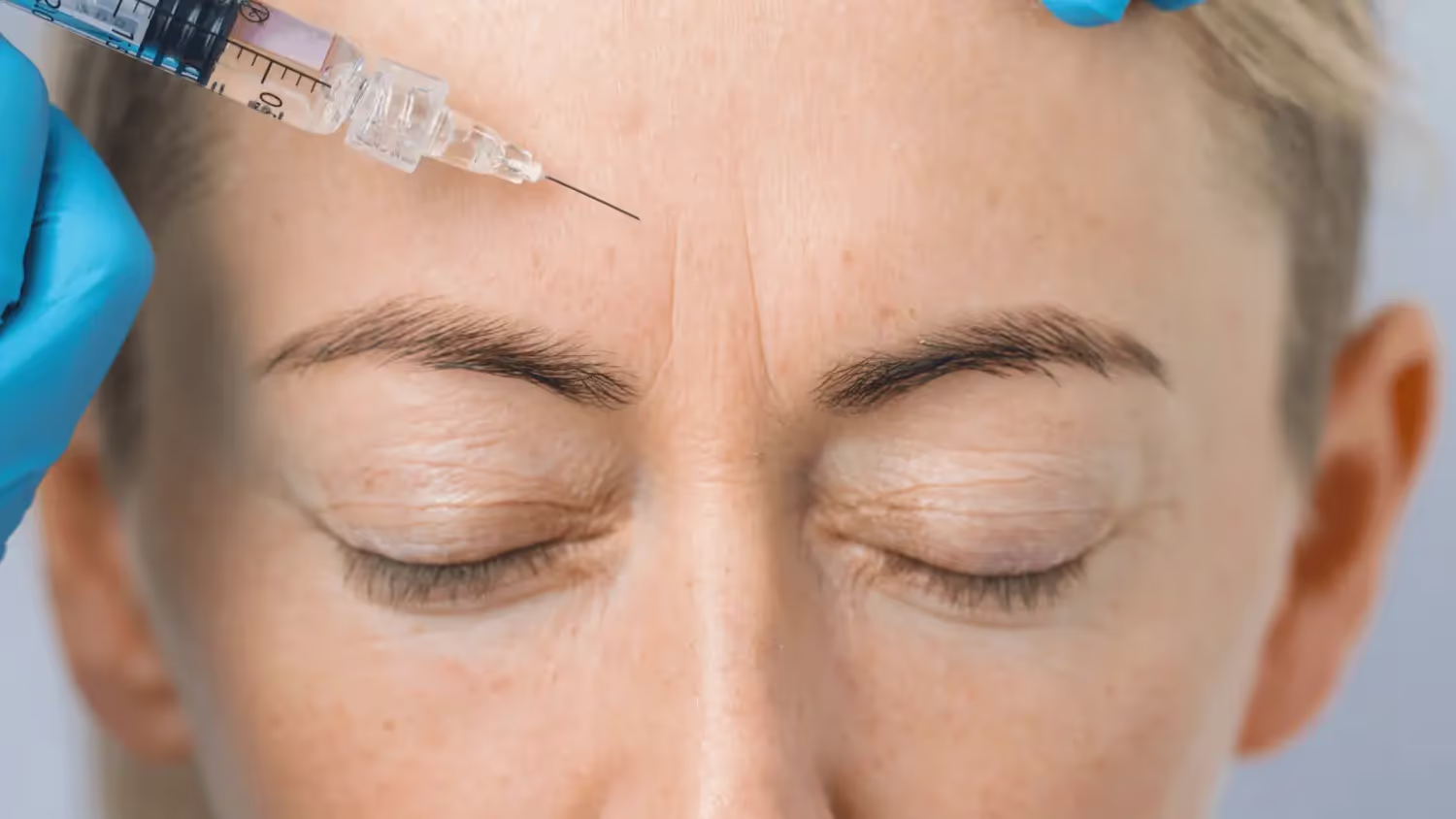Legal Strategies and Compliance Tips Every Aesthetic Provider Should Know
An unexpected visit from the licensing board is one of the most stressful events a provider can face. But knowing what to expect and how to respond can make all the difference in protecting your license, your business, and your reputation.
In this guide, we break down expert advice from top healthcare attorneys to help aesthetic providers stay compliant, calm, and legally protected. You'll learn:
- Why board investigations happen
- What to do when investigators show up
- The documentation you’re required to maintain
- How to continue treating patients safely during an active investigation
Looking for even more support? Explore our Medspa Compliance Tools for checklists, webinars, and expert guidance.
Meet the Experts: Sara Shikhman and Nicole Strothman
Sara Shikhman, Esq., Managing Partner at Lengea Law, is a nationally recognized healthcare attorney with over 18 years of experience. She has represented more than 1,500 medical aesthetics providers and medspa businesses in matters related to regulatory compliance, state board investigations, and licensing defense. Her legal expertise spans everything from scope-of-practice issues to consent form compliance — making her one of the most trusted legal advisors in the aesthetics industry.
Nicole Strothman, General Counsel at Moxie, brings deep experience in healthcare law, corporate compliance, and risk management. Prior to joining Moxie, Nicole served as in-house counsel for a multi-location medspa group, where she helped develop operational protocols and legal safeguards across clinical teams. At Moxie, she advises both internal teams and partnered providers on how to navigate board investigations, stay audit-ready, and implement best practices that reduce legal exposure.
Together, Sara and Nicole bring the legal clarity and operational insight aesthetic providers need to protect their licenses and practices with confidence.
What to Do When a Board Investigator Visits
Most board investigations begin without warning. According to legal expert Sara Shikhman, visits are often unannounced — and in some cases, investigators may even pose as patients to observe how your practice operates.
If this happens, here’s what to keep in mind:
- Stay calm. You are not legally required to immediately comply with all requests or hand over medical records on the spot.
- Politely refer them to your attorney. Let the investigator know your legal counsel will be in touch.
- Don’t go it alone. The most common and costly mistake providers make is trying to handle the situation themselves without legal guidance.
Sara shares why bringing in legal support right away helps you stay protected and keeps your medspa running smoothly.
What Triggers a Board Investigation in a Medspa?
Board investigations don’t always stem from patient harm — in fact, many are triggered by compliance oversights or administrative errors. According to attorney Sara Shikhman, the most common triggers include:
- Missing Good Faith Exams or other required documentation
- Improper delegation, such as RNs performing treatments without physician oversight
- Anonymous complaints, often from former employees, competitors, or patients
While some complaints may be malicious or exaggerated, the outcome often depends on your internal setup. Sara stresses that a well-documented, compliant practice is your best defense. In many cases, investigations are dismissed when proper protocols are in place.
Legal Support Comes First — Not Your Insurance Provider
When a board investigation begins, your first call should be to a healthcare attorney, not your malpractice insurance company. While insurance coverage may eventually be relevant, filing a claim too early can lead to higher premiums, even if no action is taken or the claim is denied.
Experienced attorneys can manage all communication with the board, helping you avoid missteps and focus on your patients. Legal representation ensures you're protected while minimizing operational disruption to your medspa.
Can You Keep Practicing During a Board Investigation?
Yes — in most cases, providers can continue seeing patients during a board investigation. A cease and desist order or practice suspension is rare and typically reserved for situations involving serious violations, repeat offenses, or immediate patient safety concerns.
As long as no formal restriction has been issued, you’re legally allowed to continue practicing while the investigation is underway—ideally with legal support guiding you through each step.
Key Documents Investigators Will Request
When a board investigation begins, investigators typically request specific records to evaluate your compliance, supervision structure, and standard of care. These often include:
- Medical Director and Management Services Agreements, especially in states with corporate practice of medicine laws
- Good Faith Exam documentation, confirming that a licensed provider evaluated the patient before treatment for all procedures performed
- Patient charts and signed consent forms for all procedures performed
Practices should treat every patient’s documentation—friend, family, or VIP—the same. No shortcuts, no exceptions. A lack of documentation or improper delegation can jeopardize your license, even if the treatment outcome was positive.
Staff Training: Your First Line of Defense
Front desk and support staff play a critical role during a board investigation, often serving as the first point of contact. According to attorney Sara Shikhman, proper staff training can prevent a stressful situation from escalating.
If an investigator arrives unannounced, your team should:
- Politely acknowledge them
- Refrain from providing documents or access to the practice
- Refer the investigator to your legal counsel immediately
Allowing investigators to enter unescorted or answer questions on the spot can inadvertently create risk or imply consent.
Want to prepare your team? Start with these tips from Sara.
Protect Your Practice When a Patient Complaint Arises
Even the best providers can face patient dissatisfaction, complications, or adverse reactions. How you respond can make a significant difference — both legally and reputationally.
Here are proactive steps to protect your practice and minimize risk:
- Demonstrate Empathy and Communicate Clearly. Many malpractice complaints are triggered by poor communication, not poor outcomes. Show concern and listen actively, it helps de-escalate emotionally charged situations.
- Consider Offering a Refund or Complimentary Service — With a Signed Release. While a release form won’t prevent a board complaint, it may discourage escalation and show good faith.
- Document Objectively and Professionally. Avoid emotional or defensive language in the patient chart. Stick to clinical facts, accurate documentation can be your strongest legal protection.
- Take Post-Treatment Photos to Protect Against False Claims. High-quality, date-stamped after photos can confirm treatment results and are invaluable in case of disputes or legal challenges.
What to Do If You Made a Clinical Mistake: Protecting Your License and Practice
Even experienced providers make mistakes. The key is how you handle the situation and whether your actions align with legal and regulatory standards.
If you followed proper protocols and the patient signed a consent form that clearly outlined the risks, your state board may be more likely to dismiss the complaint, even if the outcome wasn’t ideal.
As Sara emphasizes, licensing boards prioritize legal compliance over clinical experience or professional reputation. Ensuring every step is well-documented and within your scope of practice is your best protection.
Complaint vs. Investigation: What’s the Difference?
Not every patient complaint triggers a full investigation. A complaint is an initial allegation — and if your documentation is thorough and your protocols were followed, it may be dismissed quickly.
An investigation, on the other hand, is a formal process. It often involves medical record reviews, written statements, interviews, and, in some cases, administrative hearings. These reviews can take several weeks to over a year, depending on the board’s caseload and the complexity of the issue.
How Long Does a Medical Board Investigation Take?
There’s no set timeline. A board investigation may wrap up in a few weeks or stretch beyond a year depending on the case’s complexity and how quickly the involved parties respond.
While delays can sometimes benefit the provider by reducing urgency or emotional intensity, they also extend the period of uncertainty — which can be stressful both personally and professionally.
Final Advice from Sara Shikhman
Sara emphasizes that preparation and professionalism can make all the difference when facing a board complaint or investigation.
- Make sure your staff is trained on how to handle unannounced board visits. Confusion or inconsistent answers can raise red flags.
- Maintain consistent, detailed documentation for every patient interaction, not just the complex ones.
- Treat all patients equally, including friends and family, to avoid any appearance of favoritism or informality.
- Don’t try to manage an investigation on your own. Legal representation isn’t optional — it’s essential.
- And perhaps most importantly: remember that a board complaint doesn’t have to define your practice. Most cases can be resolved discreetly and professionally with the right approach.
Conclusion: Confidence Comes from Preparation
Board investigations can feel overwhelming — but with the right systems in place, they don’t have to derail your career. Watch the full webinar for practical, provider-focused guidance on getting through an investigation.
If you're partnered with Moxie, our team is already in your corner. And if you’re not yet working with us, now’s the time to get the support you need.
Book a call to learn how Moxie’s compliance tools and expert support can help you stay protected and prepared.
When you're ready to take the next step in launching or growing your aesthetic practice, here are 3 ways Moxie can help:




